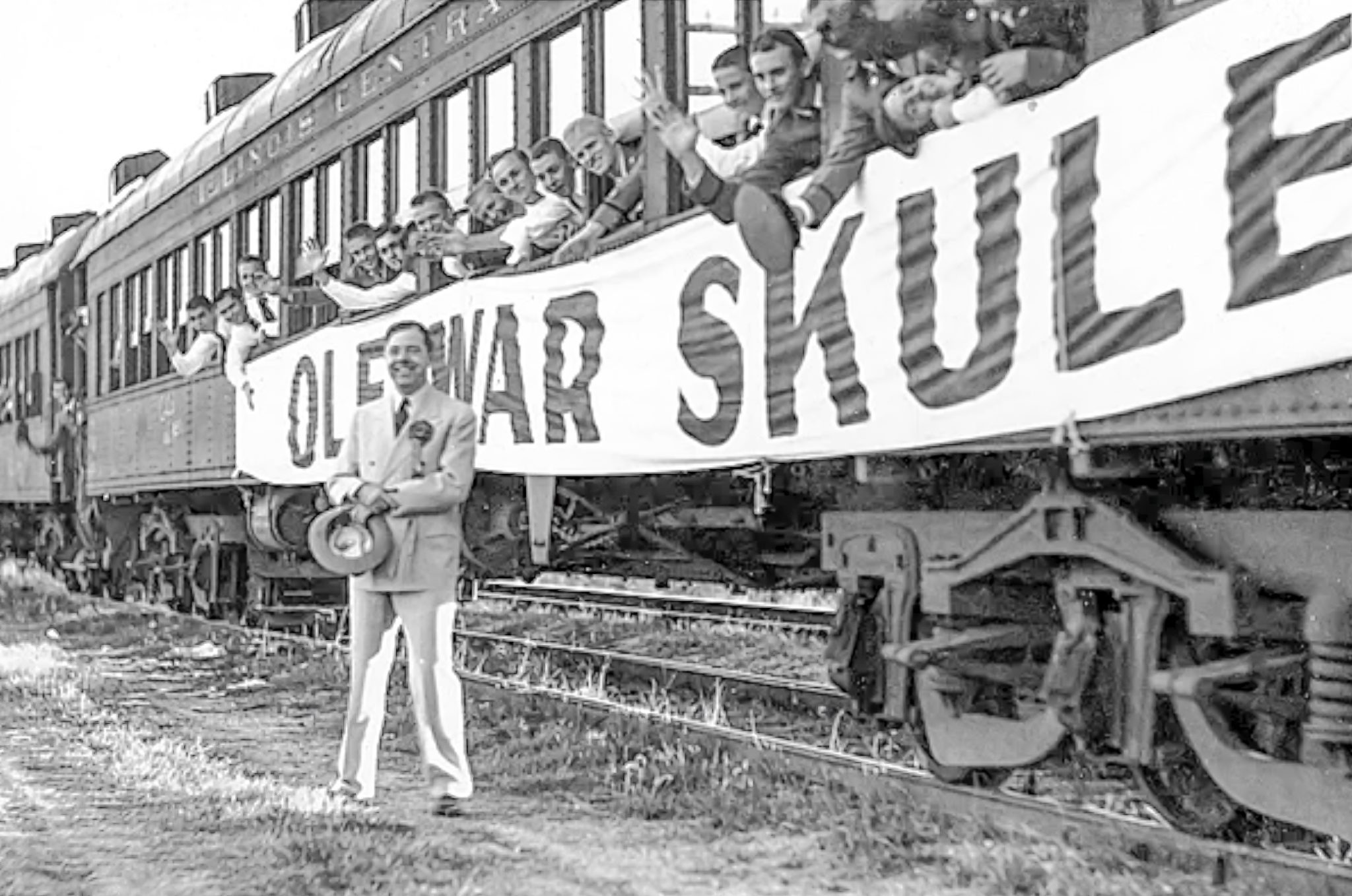520
He paced the Tiger Stadium sidelines, gave rousing locker room speeches and traveled with the football team. But this unofficial coach could not leave Louisiana without temporarily giving up his gubernatorial powers.
In a new book, “Kingfish U:

Huey Long, then a U.S. senator, stood next to a train in Oct 1934 before LSU students, cadets, band members, alumni and fans left for Nashville for a football game with Vanderbilt University.



